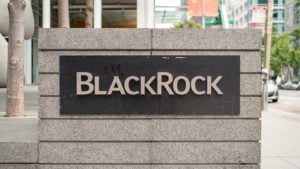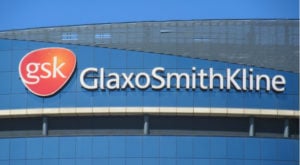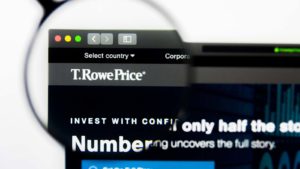In 2019, S&P 500 companies paid out a record $485 billion in dividends. In 2020, that number’s expected to grow to more than $500 billion. It stands to reason that there will be lots of S&P 500 stocks to buy in the year ahead that will increase their dividends by more than 10% year-over-year.
In 2019, several S&P 500 stocks saw their dividend yields rise significantly as their share prices fell dramatically. One of the biggest losers was Macy’s (NYSE:M), whose yield started 2019 at 5.1% but now yields 9.1% due to a 43% decline in share price.
While it’s possible that the S&P 500 duds of 2019 will be the winners of 2020, the S&P stocks I’m going to recommend in this article are those companies that have already raised their dividend payments by 10% or more.
It’s far more critical that a dividend payer can sustainably increase its annual dividend from one year to the next. It’s far less important what the yield brings.
Here are my 10 S&P 500 stocks to buy that will increase their dividends by double digits in 2020.
S&P 500 Stocks: Activision Blizzard (ATVI)

Dividend Yield: 0.6%
On Feb. 6, Activision Blizzard (NASDAQ:ATVI) announced its fourth-quarter and 2019 results. Included in the announcement was an 11% increase in its annual dividend to 41 cents a share. Payable on May 6, ATVI stock currently yields 0.6%.
In my most recent article about the video game publisher, I considered whether ATVI stock could get back to $80, where it last traded in September 2018. While I liked the idea of the company launching a second league based on one of its successful video game franchises, I ultimately concluded it wouldn’t get to $80 until 2021.
That said, I like it long term, and the 4-cent increase in its dividend is better than a kick in the head.
Ametek (AME)

Dividend Yield: 0.7%
On Feb. 12, Ametek (NYSE:AME) announced a 29% increase in its quarterly cash dividend to 18 cents from 14 cents in the previous quarter. Payable on March 31, AME stock has an annual rate of 72 cents that yields 0.7%.
Another tiny yield, but investors shouldn’t worry about it. The two most important things to consider are that it increased the dividend by almost 30% in 2020, and it’s got a three-year annualized total return of 24.5%.
“AMETEK’s portfolio of highly differentiated businesses continues to deliver outstanding operating performance and cash flow generation,” CEO David Zapico said in a press statement. “These results are driven by the strength of the AMETEK Growth Model. We are focused on deploying our free cash flow primarily on strategic acquisitions, driving long-term shareholder value.”
Ametek, which manufactures electronic instruments, had 2019 sales of $5.2 billion, up 37% from $3.8 billion in 2016. In that time, its free cash flow has also grown nicely from $693.5 million in 2016 to almost $1 billion in the trailing 12 months.
As its free cash flow grows, expect the dividends paid out to increase as well.
Anthem (ANTM)

Dividend Yield: 1.3%
On Jan. 29, Anthem’s (NYSE:ANTM) audit committee announced an 18.8% increase in its quarterly cash dividend to 95 cents from 80 cents in the previous quarter. Payable on March 27, ANTM stock has an annual rate of $3.80, which yields 1.3%.
I first recommended the provider of medical benefits in November 2018. I felt CEO Gail Boudreaux, as a woman at the top of a major U.S. corporation, would deliver the goods. Then I doubled down on Anthem in January, calling it one of The 10 Best Value Stocks to Own in 2020.
My rationale for buying Anthem over UnitedHealth (NYSE:UNH) had everything to do with valuation. Trading at 11.5 times earnings and 0.7 times sales while UNH trades at 16 times earnings and 1.2 times sales, Anthem remains the value play of the two.
On top of the dividends paid, Anthem has a share repurchase program with $3.8 billion left on it. In 2019, the company repurchased 6.3 million of its shares at an average price of $269.84 a share.
Anthem continues to have a tough time getting over $300 and staying there. This should be the year it finally succeeds.
BlackRock (BLK)

Dividend Yield: 2.5%
BlackRock (NYSE:BLK) announced on Jan. 29 that it would increase its quarterly dividend by 10% to $3.63 from $3.30 in the previous quarter. Payable on March 23, BLK stock has an annual rate of $14.52, which yields 2.5%.
In recent years, BlackRock has become as famous for CEO Larry Fink’s annual letter to other CEOs, as it is for the trillions of dollars it manages on behalf of its clients. Some of the subjects covered in this year’s letter include accountable and transparent capitalism, improved disclosure for shareholders and climate change.
In October 2019, I chose BlackRock along with nine other stocks that I felt cared about all stakeholders and not just shareholders. For too long, shareholders have gotten the lion’s share of the benefits of owning a business. Fink’s letters remind CEOs that they have an obligation to more than just the owners of the equity.
Sure, BlackRock owns iShares, the world’s largest exchange-traded fund provider, but it is what they’re doing on the ESG front that will benefit all investors over the long haul.
GlaxoSmithKline (GSK)

Dividend Yield: 5.5%
On Feb. 5, GlaxoSmithKline (NYSE:GSK) announced a 21% increase in its quarterly dividend to 60 cents a share from 50 cents in the previous quarter. Payable on April 29, GSK stock has an annual rate of $2.40, which yields 5.5%.
Glaxo is undertaking a two-year spinoff program that will see it split into two businesses: The first would be a research and development-focused biopharmaceutical company. The second will house its consumer healthcare business. Likely, its prescription dermatology business will also be spun off.
Glaxo expects a two-year program to cost 2.4 billion pounds. It intends to pay for part of these costs by selling off some non-core consumer products and its assets in Latin America. It looks to generate 700 million pounds in annual savings by 2022.
The company’s consumer joint venture with Pfizer (NYSE:PFE), which only came to be at the end of July, contributed nicely to its consumer healthcare business in 2019, generating revenues of 9 billion pounds in fiscal 2019.
MarketAxess (MKTX)

Dividend Yield: 0.7%
On Jan. 29, 2020, MarketAxess (NASDAQ:MKTX) announced its Q4 2019 and full-year results. As part of that announcement, it increased its quarterly dividend by 17.7% to 60 cents from 51 cents in the previous quarter. Payable on Feb. 26, MKTX stock has an annual rate of $2.40, which yields 0.71%.
Former InvestorPlace contributor Will Healy discussed the best-performing stocks of the 2010s in December. One of them was MarketAxess, a company that provides institutional investors with a trading platform for fixed-income investments. It’s a niche business that’s captured the imagination of the fintech world.
Healy was a little concerned about the company’s valuation. I get that. However, about the same time, I picked MKTX as one of seven S&P 500 stocks that made a list of the 20 best-performing stocks of the past decade, that I thought would deliver a repeat performance in the 2020s.
MarketAxess finished fiscal 2019 with $227.2 million of free cash flow, 29.5% higher than a year earlier. It’s a cash flow machine with capital appreciation potential bar none.
I like this one a lot.
Rollins (ROL)

Dividend Yield: 1.2%
Rollins (NYSE:ROL) increased its quarterly cash dividend by 14.3% on Jan. 29 to 12 cents from 11 cents in the previous quarter. It is the 18th consecutive annual increase of more than 12%. Payable on March 10, ROL stock has an annual rate of 48 cents that yields 1.2%.
In December, I highlighted 10 stocks that had lost 8% or more of their value over the previous month. Rollins was one of those companies. Since then, it’s recovered nicely up 20% over the past eight weeks.
Rollins has one of those businesses that I love. It is isn’t sexy like Amazon (NASDAQ:AMZN) or Apple (NASDAQ:AAPL), but it provides a service that you absolutely must use if you want to eliminate bug problems in your house or office. Its Orkin brand operates on every continent except Antarctica.
In 2019, it broke through $2 billion in sales for the first time. This is a steady-as-she-goes type of business.
S&P Global (SPGI)

Dividend Yield: 0.9%
S&P Global (NYSE:SPGI) increased its quarterly dividend by 17.5% on Jan. 29 to 67 cents from 57 cents in the previous quarter. Its annual dividend has grown by 10.1% on a compounded basis since 1974. It has paid a dividend every year since 1937. Payable on March 11, SPGI stock has an annual rate of $2.68, which yields 0.9%.
A few days after increasing its dividend, SPGI reported its fourth-quarter and full-year results for 2019. Sales increased 7% year over year to $6.7 billion; adjusted earnings rose 12% in 2019 to $9.53 a share.
Free cash flow, one of my favorite items in a financial statement, grew by 40.1% in 2019 to $2.5 billion. In 2020, it expects free cash flow to grow between 3%-7% in 2020.
I’ve liked SPGI for some time. In April 2019, I suggested its stock could double over the next five years. My rationale had everything to do with the fact it is going to continue to benefit from the financial services industry’s transition to digitalization.
This is a stock you stick in a drawer and forget about for a decade or two.
T. Rowe Price (TROW)

Dividend Yield: 2.6%
On Feb. 12, T. Rowe Price (NYSE:TROW) announced an 18.4% increase in its quarterly cash dividend to 90 cents from 76 cents. Payable on March 30, TROW stock has an annual rate of $3.60, which yields 2.6%. It is the 34th consecutive year increasing its dividend.
Back in June 2018, I highlighted T. Rowe Price’s big buyback pointing out that it upped the program to 21 million from 11 million in April 2018.
How did that work out for T. Rowe?
In 2018, the company repurchased 10.8 million shares or 4.4% of its outstanding shares at an average price of $101.81 a share. In 2019, it repurchased 7 million or 2.9% of its outstanding shares for an average price of $101.65 a share.
Combined, that’s $1.8 billion expended to buy 17.8 million shares for an average price of $101.60 over 24 months. Based on a current share price of $136.42, that’s a return of 34.3% on its $1.8 billion investment.
Debt free, T. Rowe Price is a financial services company worth considering.
Yum! Brands (YUM)

Dividend Yield: 1.8%
On Jan. 24, Yum! Brands (NYSE:YUM) announced an 11.9% increase in its quarterly cash dividend to 47 cents from 42 cents in the previous quarter. Payable on March 6, YUM stock has an annual rate of $1.88, which yields 1.8%.
Three years ago, Yum! Brands began its transformation. At the end of the fourth quarter, CEO David Gibbs announced the company had finished the transformation with flying colors.
“2019 was a truly historic year for our company. For the full-year, we generated over $50 billion in system sales and ended the year with over 50,000 restaurants thanks to our world-class franchisees,” Gibbs stated in its Q4 2019 press release. “We delivered results consistent with our long-term growth algorithm with same-store sales growth of 3% and net-new unit growth of 4%.”
On Jan. 6, Yum! Brands made a big move acquiring Habit Burger Grill, one of the most popular burger chains in the U.S. With the addition of Habit Burger, it adds burgers to its lineup of pizza, chicken and Mexican food.
Habit Burger currently has 278 locations. Look for that number growing significantly over the next 3-5 years.
Will Ashworth has written about investments full-time since 2008. Publications where he’s appeared include InvestorPlace, The Motley Fool Canada, Investopedia, Kiplinger, and several others in both the U.S. and Canada. He particularly enjoys creating model portfolios that stand the test of time. He lives in Halifax, Nova Scotia. At the time of this writing Will Ashworth did not hold a position in any of the aforementioned securities.
